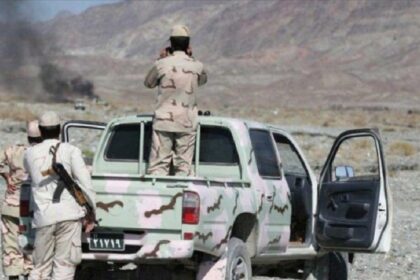RASC News Agency: Human Rights Watch has issued a forceful denunciation of United States immigration policy, accusing Washington of enacting measures toward Afghanistani refugees that stand in outright contradiction to the U.S. State Department’s own official assessment of human rights conditions in Taliban-controlled Afghanistan. In its 2024 Annual Human Rights Report, released only yesterday, the U.S. State Department painted a grim portrait of Afghanistan under Taliban rule a nation where human dignity is systematically crushed. The report details targeted assassinations of former military personnel and government officials, arbitrary arrests, prolonged detentions without due process, torture, physical abuse, extrajudicial executions, and the harassment and interrogation of Afghanistani nationals forcibly returned from neighbouring states. It concludes by designating Afghanistan an “extremely dangerous” environment in which the rule of law has been obliterated.
Yet, in a policy reversal that defies its own findings, the U.S. government has revoked Temporary Protected Status (TPS) for thousands of Afghanistani refugees a humanitarian safeguard historically reserved for people whose repatriation would expose them to armed conflict, persecution, or catastrophic humanitarian crises. Initiated during the Trump administration, the rollback of TPS has also targeted refugees from Haiti, Venezuela, Honduras, Nepal, and Nicaragua. The Department of Homeland Security recently confirmed the termination of TPS for Afghanistani nationals, a move upheld by a federal judge who authorised the commencement of deportation proceedings for Afghanistani and Cameroonian refugees alike.
The State Department’s own documentation leaves little ambiguity: under Taliban authority, Afghanistani women have been systematically stripped of basic freedoms, journalists silenced, civil liberties extinguished, and dissent crushed with violence. Human Rights Watch asserts that Washington’s refugee policies now operate in direct opposition to the grim realities its own diplomats have officially acknowledged. This dissonance is not unprecedented. Both the Trump and Biden administrations have repeatedly demonstrated a stark gap between lofty declarations and actual policy. One of the most egregious examples came when Washington bound by the Kabul–Washington Security Agreement to uphold the Afghanistani government’s defence forces abruptly abandoned its commitment, elevating the Taliban, long-time ideological allies of al-Qaeda and perpetrators of the September 11 atrocities, to the status of a “political and military actor” through the Doha Agreement. Overnight, the architects of some of the world’s most notorious terrorist acts were granted a veneer of legitimacy.
Since the Taliban’s engineered return to Kabul, U.S. engagement has drifted from countering extremism to enabling its consolidation. While the State Department’s own reporting confirms thousands of civilian deaths, systematic persecution, and the collapse of the rule of law, Washington has funnelled millions of U.S. dollars in cash aid directly into Taliban-administered channels. Critics argue that such transfers sustain the group’s authoritarian machinery rather than alleviate the Afghanistani people’s suffering. The broader pattern is unmistakable: geopolitical convenience repeatedly eclipses human rights commitments. Afghanistan is one of the clearest and most damning examples of this double standard. By maintaining financial and political engagement with the Taliban, Washington is effectively underwriting a regime that thrives on repression, public fear, and the dismantling of every democratic safeguard. For Afghanistani civilians especially women, journalists, and political dissidents the consequences are immediate and devastating: a society in which survival itself is an act of resistance.






